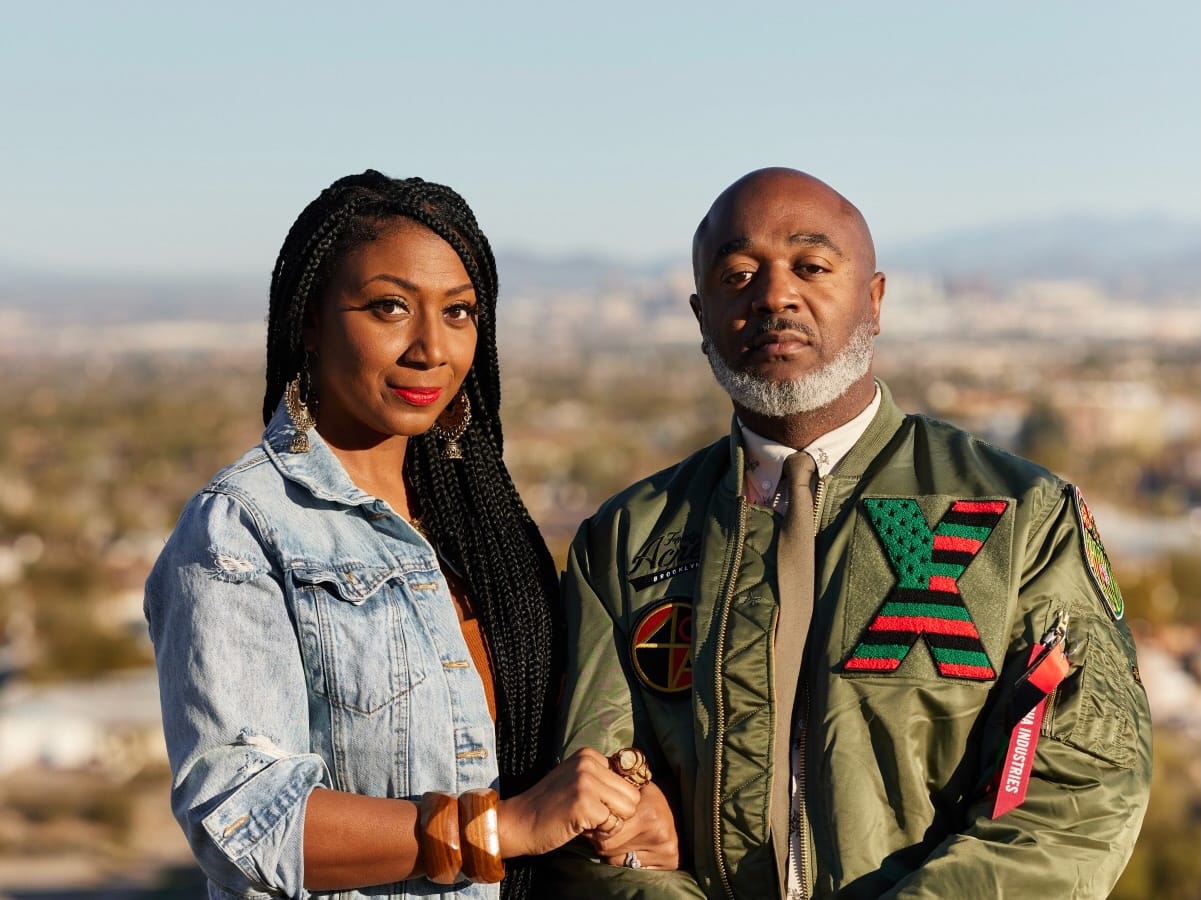The great Black Rivers of Jamaica and South Carolina are surely responsible for generations of love stories. I’d like to tell you my favorite.
It all started over okra stew. Brian, a native Jamaican and descendant of the island’s Black River community, much to his mother’s chagrin, can’t stand the stuff. But his love, Collette, a Gullah Geechee South Carolinian who grew up on Black River Road, scored some major daughter-in-love points by being a big fan of the earthy vegetable. This culinary cross-cultural bridge yielded this (impossibly) cute story and what we now know as Black River Life, a creative media studio that connects art and stories of migration, resistance, community, and repair across the African diaspora.
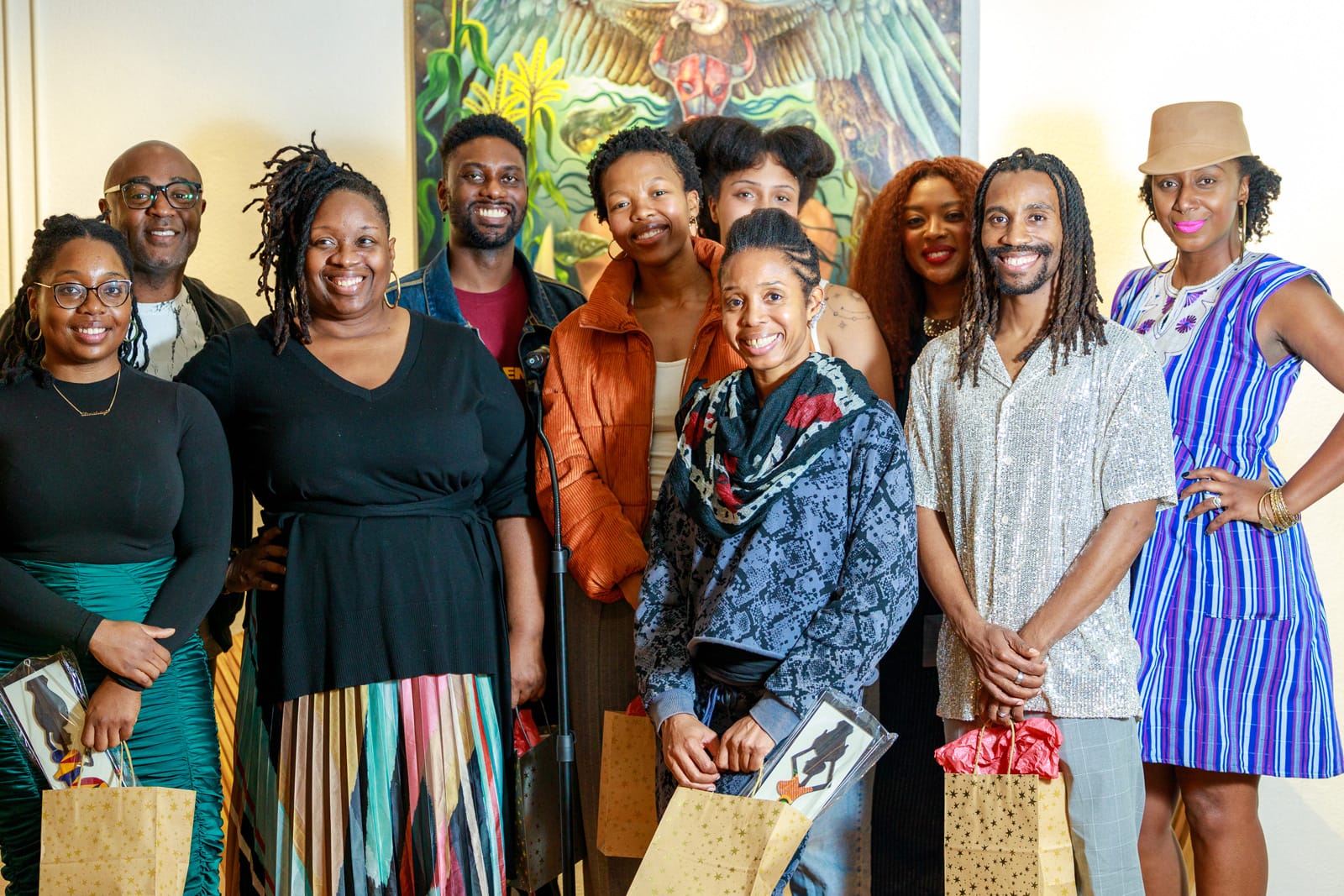
Our roots transcend geopolitical lines, collapse distance, and nourish bellies. More than okra helps invisibilize imposed borders—and Black River Life is on a mission to explore just how much. “The table doesn’t get set for us as Black people to make these connections very often.” Before and beyond the disconnection, fragmentation, racialization, and other distractions of colonization and imperialism, we are the great Black River. We just have to remember. Black River Life is a community container for discovery and rediscovery of the rich continuum of Blackness, a conduit for diasporic creativity, and an archive of stories, histories, and futures.
Black River Life was conceived from a profound reverence for the ancestral lineages that shape who and how we are today. Serendipity exposed the Watsons’ shared West African heritage, but intention lays the foundation for Black River Life. Through storytelling and art, we catalog treasure troves of customs and agricultural practices in South Carolina that have roots from Sierra Leone to Ghana to Nigeria. We explore foodways and movement woven into daily life in Jamaica that hail from India and Brazil. And so, so much more. The intersections of our cultural threads are not only shared but sacred, and it is our responsibility and pleasure to attend to them. “We have a shared history, but we rarely get the opportunity to come together and reflect on it.”
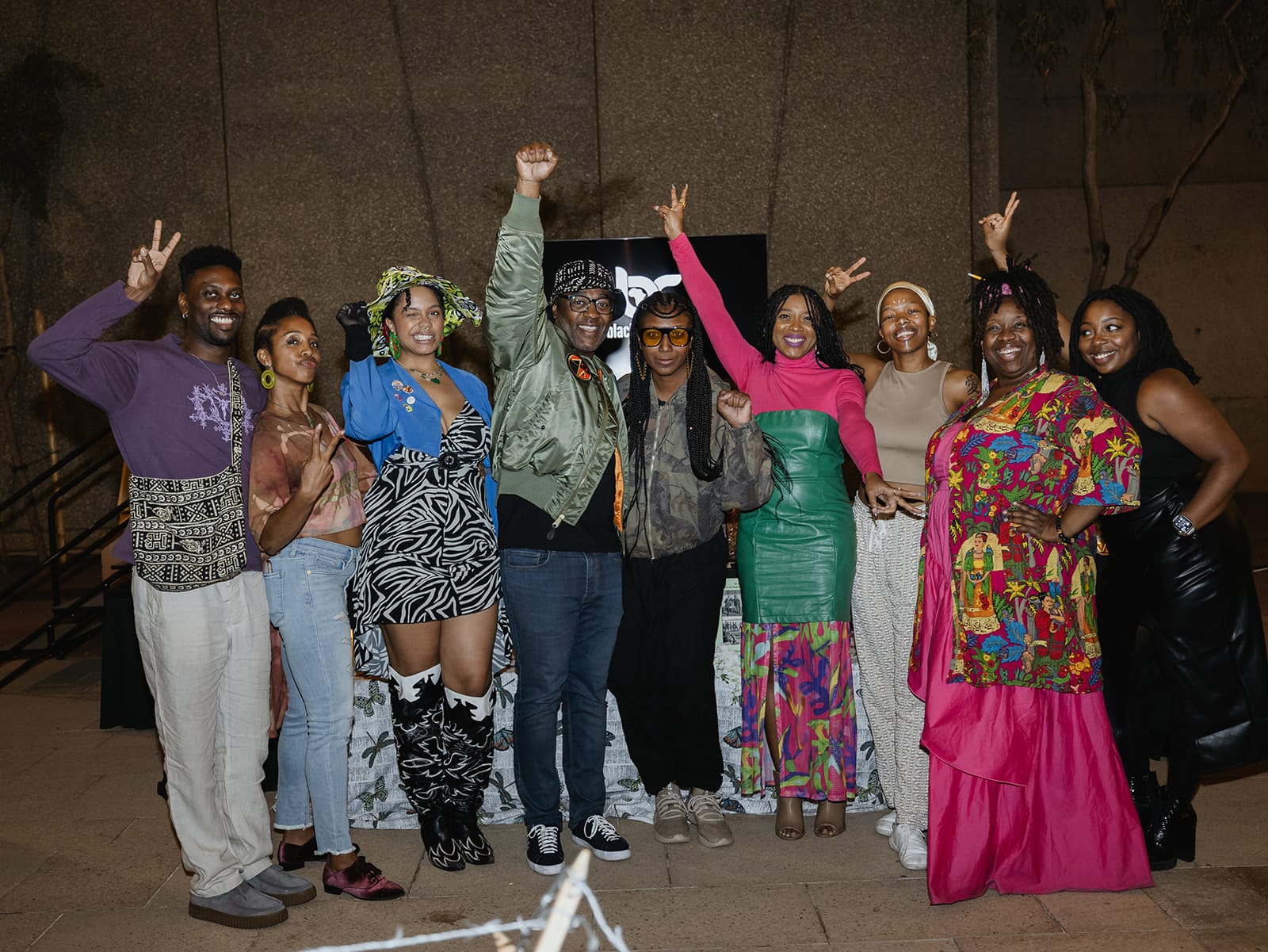
These two creative forces answered the call to build an embodiment of their shared vision for a space where Black people could explore the full richness of their connected cultural narratives through their chosen creative mediums. "We didn’t just want to tell stories," says Collette. "We wanted to create a platform where we could access more of ourselves and each other."
Forged from the mighty river that brought them together, the studio is like water itself—always adapting, always flowing, always returning to its source. The water in and around us holds what no other medium can: memory. This also speaks to the broader narrative we’re trying to tell about migration and identity—fluid, expansive, and connecting us all. “We are born and loved and should be treasured in that way throughout our existences.” Water, much like our work, is a life force, an essential connector that reflects the vast, intertwined currents of prismatic Blackness across time and space.
Creation often requires deconstruction. For Black River Life, this means challenging false narratives surrounding the African diaspora, primarily the myth that whiteness provides direction or purpose. Black River Life is a direct response to the limited imagination of colonization and capitalism—rooted in a return to nature, to the spiritual forces of Blackness that have been devalued. Through the community-focused studio, we aim to simultaneously simplify and expand how we access our connection to one another and our creative source. "Our stories, our migrations—they’re not just about survival. They’re about wonder, joy, and the freedom to create.”
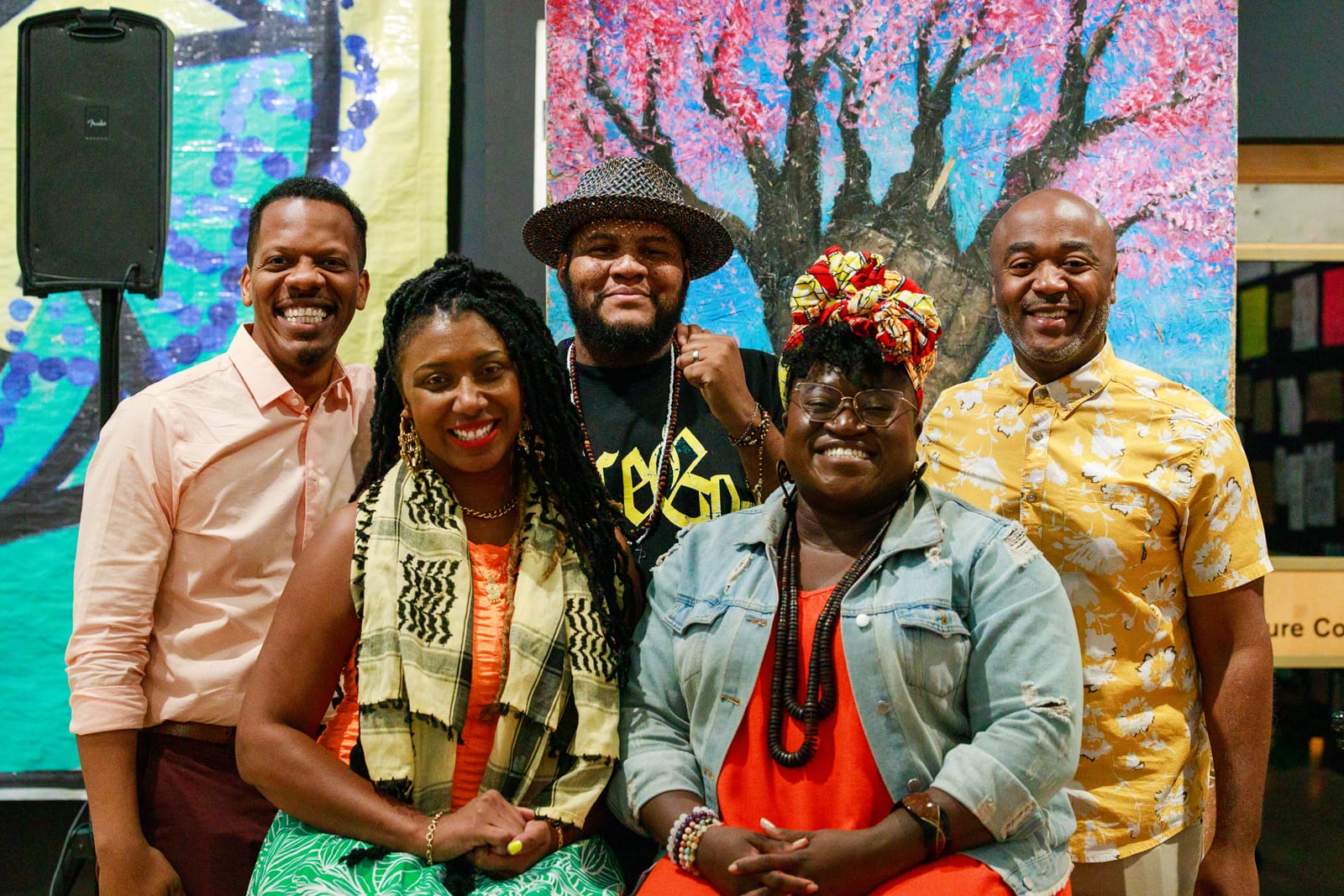
“We have to honor the truth of what has been forgotten, what has been suppressed. When you talk about Black migration, it’s not all suffering—it’s about our sense of wonder, our sense of possibility.” In many ways, the space they’ve built allows for the tension between trauma and triumph to exist comfortably. Though tech and modern mediums often use that tension to flatten the depth of cultural stories, Black River Life defies that trend. For our studio, the key is sensitivity—to the truth of resistance, rebellion, and resilience that has often been hidden in history. As artists, we approach our craft with intention and care—planning each shot, listening intently, and allowing the moment to reveal itself. "The secret to capturing someone’s essence on film is being prepared to listen," Brian explains. "It’s about allowing the story to emerge without imposing an agenda." This deep respect for the complexities of each individual’s experience is what makes our work resonate—authenticity that doesn’t sanitize or gloss over the complexity of the lives we’re documenting.
“We’re a channel for accessibility, but we don’t want to undermine the rawness of these experiences.” To best protect the people and stories we hold, the Black River Life team intentionally avoids framing our work based on the hierarchies of power that often define mainstream narratives. Instead, we approach people with curiosity, especially attuned to those everyday, often overlooked moments—the mundane breadcrumbs that speak to the wider diaspora. "These are the stories that carry the fullness of Blackness," Collette reflects. "And we need to honor them all."
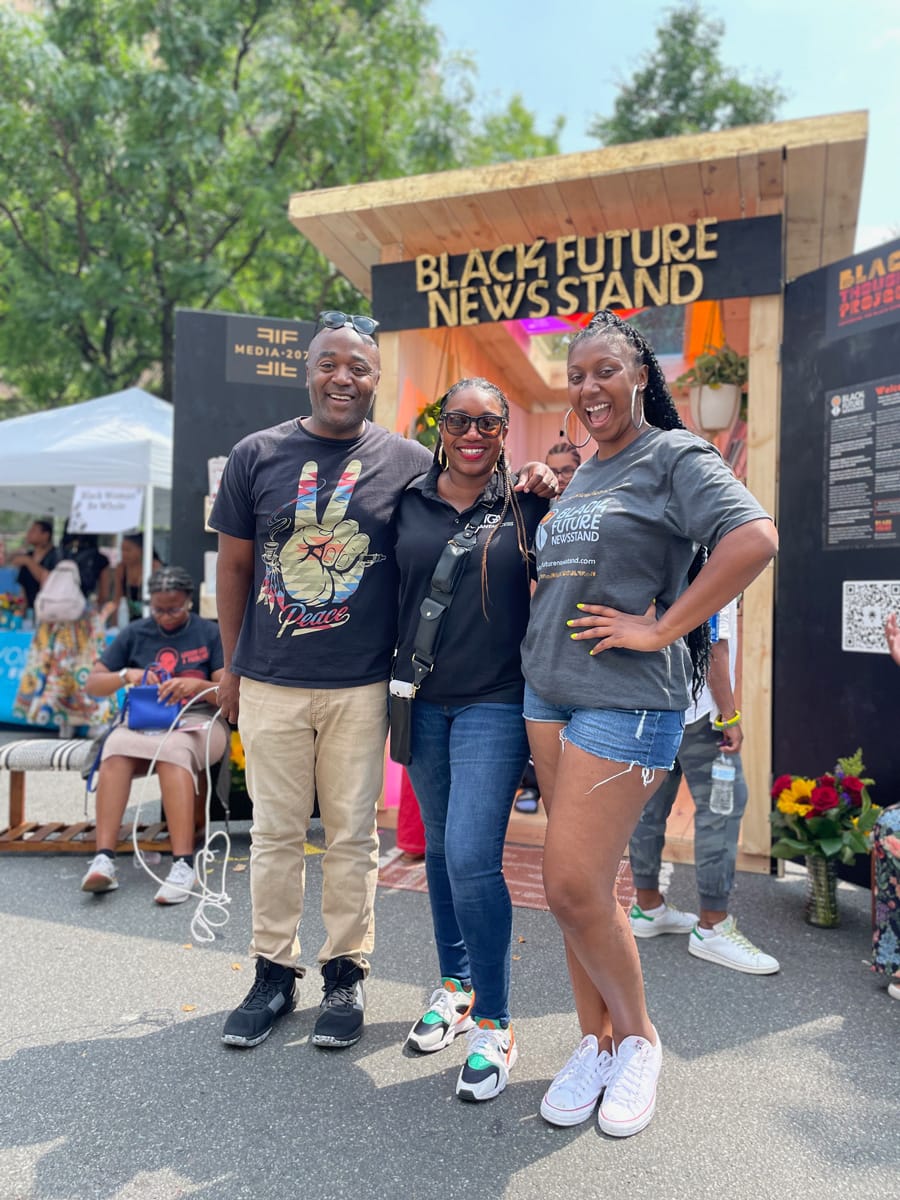
"Our micro migration stories have something sacred to offer the larger narrative of Black migration," says Brian. Reflecting on this, one moment stands out—the story of a woman who moved across the country to Phoenix to seek better environmental conditions for her son’s health. “She went across the country to something new, just so I could get a chance to live," her son remarked. “That is migration—it’s not just about survival, it’s about making space for a better life." This story, like so many others, is a reminder that Black migration, forced and elective, should be seen as a source of pride, strength, and tenderness—a reflection of the deep promise that lies within us.
Black River Life’s mission is to shift the culture—especially among Black youth, academia, and artists—toward a deeper understanding of Blackness that transcends the constraints of modern capitalism. “It’s about creating a culture shift," says Collette. "We need to recognize that Black people are whole, worthy, and the stories of our diaspora are expansive and full of possibility." We aim to foster a deep, lasting relationship with the multiplicities of Black identity and migration, challenging the narratives that often limit our understanding. Our commitment to these truths—rooted in Sankofa, in water, in our signature Black Migratory Identity framework—creates a space where we can all reimagine what it means to be connected.
As Black River Life has grown, Collette and Brian have been sustained by a network of supporters—those who’ve shared prayers, resources, and guidance when they’ve needed it most. From family to grassroots organizations to personal mentors, they’ve been constantly reminded that the strength of the collective is what keeps them going.
Like the river that flows through the heart of both Jamaica and South Carolina, Black River Life carries with it the stories of migration, love, and community, woven together with care. From an appreciation of okra stew to the monumental tasks of unearthing hidden histories, our stories remind us that our collective currents are what bind us. Blackness, like water, remembers and returns, no matter what.


